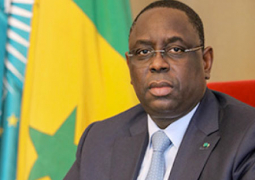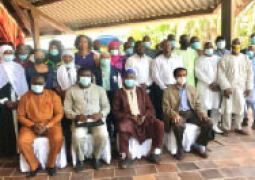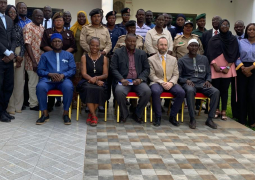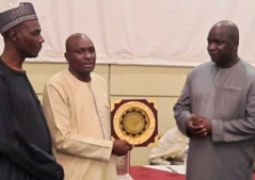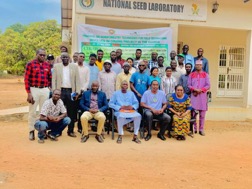
Farmers and other stakeholders are expected to be trained on best Agro-forestry management skills during the course of the training.
Morro Manga, director general for the National Seed Secretariat in his welcoming remarks said the project is being implemented in four West African countries, namely The Gambia, Senegal, Cape Verde and Ghana with 14 partners from Africa and Europe.
According to DG Manga, CIRAWA is aimed at unlocking the agro-ecological practices in West Africa by building up existing indigenous and scientific knowledge to improve food and nutrition security.
He stated that for the case of The Gambia, the project is being implemented in NBR and CRR-N, noting that NBR experiences the smallest amount of rains compared to other regions, and therefore it is considered as resilient to vulnerability to shocks.
Dr. Saikou E. Sanyang, deputy permanent secretary at the Ministry of Agriculture said climate change poses a significant threat to food security particularly to small countries like The Gambia, which mainly rely on their agricultural sectors to maintain adequate food production.
DPS Sanyang observed that in The Gambia, salt-water intrusion has compromised many rice growing areas (swamps), noting that this is affecting crop yield severely.
He cited that adopting agro-forestry practices that contribute to resilience and food security is the way forward for The Gambia.
He pointed out that the global vision and plan of action for forests and people are enshrined in the United Nations strategic plan for forests 2030. This he added is fully aligned in the 2030 Agenda for sustainable development through its global forest goals and associated targets.
According to him, to realize this vision, we must accelerate action to tackle the drivers of deforestation and forest degradation, strike a balance between economic growth, social progress and environmental sustainability as well as improve governance to deliver a greener future.
He added that to do this, we need to ensure that sustainable forest management strategies are integrated into green recovery and economic stimulus packages.
He also pointed out the need to support the capacities of countries to mobilise resources and unlock private finance for forests.
DPS Sanyang further said that implementing the United Nation Strategic Plan for forests 2030 means working together to reverse forest loss, increase the worlds forest area by three percent, and eradicate extreme poverty for forest-dependent people.


